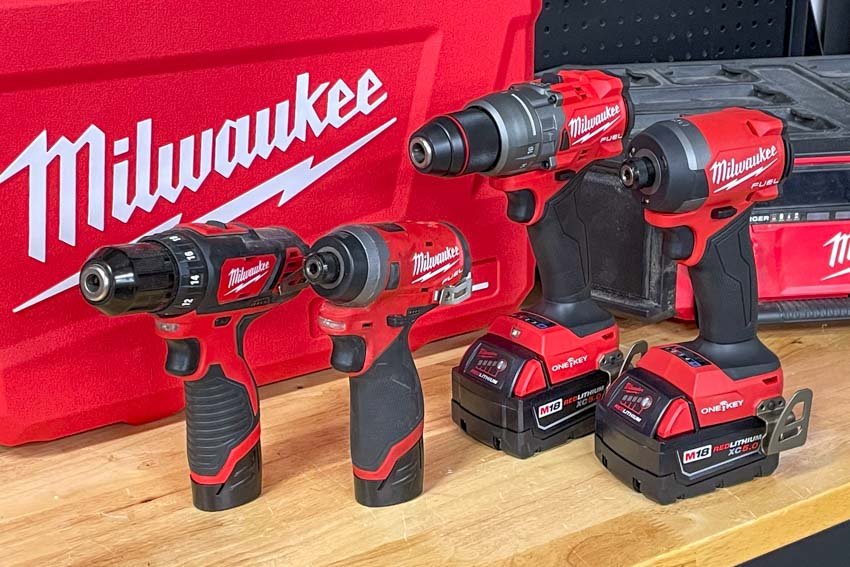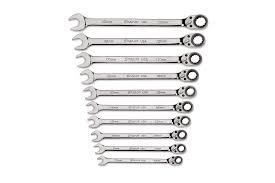In an age dominated by tech startups and college degrees, a counterculture is rising—young men across America are picking up tools instead of textbooks, chasing freedom over student loans. This isn’t just a phase. It’s a mindset shift. And it’s reshaping how we define success, masculinity, and financial independence in 2025.
The trades are back—and they’re better than ever. Whether it’s welding pipelines, wiring homes, or building solar farms, skilled trades are offering something universities can’t: purpose, prosperity, and pride.
Table of Contents
1. The Pay Is Real: Trades Are Crushing the $100K Ceiling
Gone are the days when “blue-collar” meant “low income.” In 2025, many tradesmen are earning six figures, often with no degree and less than five years of experience.
- Certified pipe welders make $90,000–$120,000 per year in industrial sectors like oil, gas, and infrastructure.
- Experienced electricians in cities like Seattle or New York regularly break $100K.
- Specialized HVAC techs, diesel mechanics, and solar installers are all pushing $80K+ within a few years on the job.
Unlike office jobs with fixed salaries and capped bonuses, trade jobs often include overtime, hazard pay, and contract flexibility—meaning your hustle directly affects your income.
2. No Student Loans: Learn a Skill, Earn a Future
Trade school tuition is a fraction of college costs. Many programs cost under $20,000 total, and apprenticeships often let you earn a wage while you train.
Compare that with the average U.S. college student debt—over $37,000 in 2025. It’s a financial burden that delays homeownership, starting a family, and freedom.
But the trades? They’re a shortcut to ROI.
- Two years in trade school.
- Zero debt or even paid training.
- Immediate entry into high-demand, high-paying work.
If you value freedom, it starts with choosing a path that doesn’t shackle you to debt.
3. Freedom Over Desks: Build Your Own Business
In the trades, you’re not just building things—you’re building options.
Many men start as employees, then level up by going solo. Within 3–5 years, tradesmen can open their own operations, take on private clients, and hire others.
- Electricians can contract residential and commercial jobs.
- Welders can freelance in shipyards or oil refineries.
- Plumbers and HVAC pros can build multi-service businesses and scale locally.
No gatekeepers. No corporate ladders. Just you, your reputation, and your results.
In 2025, masculine independence isn’t just a dream. It’s a work van, a toolbox, and a calendar full of paid jobs.
4. Viral Tradesmen: TikTok Is the New Union Hall
Tradesmen are becoming influencers. Not by chasing fame, but by showing real, satisfying work.
Search TikTok or Instagram and you’ll see mechanics showcasing tool hauls, welders sharing bead runs, or plumbers solving complex installs. These creators have hundreds of thousands—even millions—of followers.
It’s not just entertaining. It’s educational, inspirational, and redefining masculinity for Gen Z and millennials.
Popular accounts like @dieseldr, @essentialcraftsman, and @theplumbingguru are showing that you can be rugged, resourceful, and respected—all while making a solid living.
The trades are going viral because they’re real. No filters. Just function.
5. Masculine Fulfillment: Hands, Mind, Purpose
Many modern jobs feel intangible—emails, Zoom calls, spreadsheets. But trades? You see the results.
- You fixed the truck.
- You framed the wall.
- You installed power in a new home.
That sense of immediate accomplishment taps into something primal: mastery, utility, and meaning.
It’s also why mental health outcomes are improving for men who transition into hands-on work. Fewer hours behind a screen. More time solving real problems. Less existential burnout.
In 2025, purpose is productivity—and it comes from building things that matter.
6. Gear, Tools, and the Lifestyle of Utility
Part of what makes the trades so appealing is the gear. This isn’t a gimmick—it’s a lifestyle of function.
- Milwaukee drills, Snap-On wrenches, custom rigged service vans—these tools are assets, not toys.



- Workwear from Carhartt, Red Wing, and Ironclad isn’t fashion. It’s durability designed for battle.

- Each upgrade to your toolbox or shop setup increases speed, accuracy, and confidence.
For gear-minded men, the trade lifestyle blends tech with tactile performance. You’re constantly optimizing, upgrading, and earning returns from real-world tools.
And unlike tech gadgets, these tools pay you back.
7. Which Trade Fits Your Mindset?
The trades aren’t one-size-fits-all. Your personality, preferences, and physicality will help you decide which skill to master. Here’s a quick breakdown:
Welding
- Great if you enjoy solitude, precision, and don’t mind heat or travel.
- Specializations include underwater welding, structural, pipeline, and TIG/MIG.
Electrician
- Ideal for guys who love puzzles, logic, and system design.
- Opportunities in residential, commercial, and industrial work.
HVAC
- Strong if you like both physical and diagnostic work.
- High demand, especially in climate-sensitive regions.
Plumbing
- Consistent jobs, good margins, and lots of room to scale solo.
- Problem-solving and customer interaction are key.
Carpentry
- For men who enjoy craftsmanship, framing, and visible results.
- Can pivot into custom furniture, cabinetry, or even restoration.
Diesel Mechanic
- Best for hands-on problem-solvers and engine lovers.
- In demand for trucking, agriculture, construction, and marine engines.
Trade vs. Degree: The Real ROI in 2025
Let’s compare two hypothetical 19-year-olds:
- Mike goes to trade school. Pays $15K. Works full-time in 18 months. Makes $70K by 21. Has no debt. Buys a house at 25.
- Josh goes to a private university. Pays $45K/year. Graduates with $100K+ debt. Starts at $45K/year. Rents until 30.
Now tell me—who’s got the edge?
In the world of trades, success isn’t about GPA. It’s about grit, focus, and follow-through. And that makes all the difference.
Rewriting the Blueprint of Success
For decades, society sold men the “college-or-fail” narrative. But in 2025, that blueprint is falling apart. What’s replacing it?
Freedom + Function.
Today’s masculine ideal isn’t a suit behind a desk. It’s a man who knows his craft, owns his schedule, and builds things that last.
- You don’t need a diploma to own a business.
- You don’t need a degree to earn six figures.
- You don’t need permission to be respected.
You just need a plan, a skill, and a mindset for mastery.
Start Today, Dominate Tomorrow
You don’t need to be 18 to start. Whether you’re 22, 32, or even 42, the skilled trades don’t care about your past—they reward your present action.
Here’s your action list:
- Pick a trade: Research local demand and what excites you.
- Find a training path: Community college, union apprenticeships, or trade schools.
- Watch and learn: YouTube channels like RRBuildings, Essential Craftsman, and Perfection Welding.
- Invest in starter tools: Begin collecting what you need—slowly and smartly.
- Surround yourself with builders: Online or in person, trade culture is a tribe of doers.
🔧 Frequently Asked Questions (FAQ)
Q1: What are the highest-paying trade jobs in 2025?
A: Some of the highest-paying trade jobs in 2025 include pipe welding (up to $120K), electricians (up to $110K in urban areas), HVAC technicians, diesel mechanics, and solar energy installers. Specialized certifications and overtime opportunities can push earnings even higher.
Q2: Do I need a college degree to get into the trades?
A: No. Most trades require only a high school diploma or GED and can be learned through apprenticeships, trade schools, or on-the-job training. Many programs are short-term and offer paid learning opportunities.
Q3: How long does it take to become skilled in a trade?
A: Most trades take 6 months to 2 years to learn, depending on the skill and certification required. Apprenticeships often combine classroom instruction with real-world experience, allowing you to earn while you learn.
Q4: Is it possible to start a business as a tradesman?
A: Absolutely. Many electricians, plumbers, and mechanics start their own businesses after gaining a few years of experience. It’s common for skilled tradesmen to freelance or run local operations, offering flexibility and financial growth.
Q5: What tools or gear should I invest in first?
A: Start with essential, high-quality tools specific to your trade—e.g., a reliable multimeter for electricians or a solid welding mask and gloves for welders. Brands like Milwaukee, DeWalt, and Snap-On are popular among professionals for durability and performance.
Q6: How do I find a trade school or apprenticeship near me?
A: You can start by searching local community colleges, state labor department websites, or union apprenticeship programs in your city. Websites like Apprenticeship.gov and NCCER.org offer searchable directories.
Q7: Are trade jobs physically demanding?
A: Some trades, like welding or HVAC work, can be physically intense. However, many roles allow you to build strength gradually, and some involve more diagnostic or technical work than raw labor. Choose a trade that aligns with your physical interests and capacity.
Q8: Can I make content or grow a social media brand around my trade?
A: Yes. Many tradesmen are turning their skills into digital brands on TikTok, YouTube, and Instagram. Showcasing repairs, tool reviews, or build projects can grow a following—and even generate side income through sponsorships or teaching.
Q9: How do I know if a trade career is right for me?
A: If you value hands-on work, independence, and visible results, a trade might be a perfect fit. Try job-shadowing, online tutorials, or short intro courses to test your interest before committing fully.
Q10: What trade has the most job security in 2025?
A: Trades in essential services—like plumbing, electrical work, HVAC, and renewable energy installation—are seeing strong demand and long-term growth. These fields are less likely to be automated and more resilient to economic shifts.
Want to Get Started With the Right Skill?
Join MindGearMen for weekly breakdowns of high-income trades, gear guides, and real success stories from men in the field. We’ll send you our free guide: “5 Trades That Beat a Desk Job in 2025” to kickstart your path.
Build your skills. Build your income. Build your legacy.


